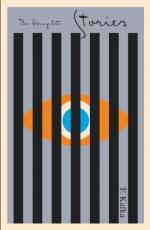|
This section contains 5,931 words (approx. 20 pages at 300 words per page) |

|
SOURCE: "Kafka's Traffic in Women: Gender, Power, and Sexuality," in The Literary Review, Vol. 26, No. 4, Summer, 1983, pp. 565-76.
In the following essay, Beck explores debased female sexuality and the "androcentric " point of view in Franz Kafka's fiction.
When, in 1952, the Austrian writer Ilse Aichinger received the prestigious Group 47 prize, her work was so often compared to Franz Kafka's that one of the group members allowed himself a little joke and referred to her as "Fräulein Kafka," only to correct himself at once, "That isn't really the lady's name; she only writes as if it were."1
In spite of the high praise intended by this somewhat backhanded compliment, Aichinger was not pleased. She did not wish to be viewed as an epigone, not even a Kafka epigone. She may also have understood that what these critics thought was so good about her work was that she was able...
|
This section contains 5,931 words (approx. 20 pages at 300 words per page) |

|


